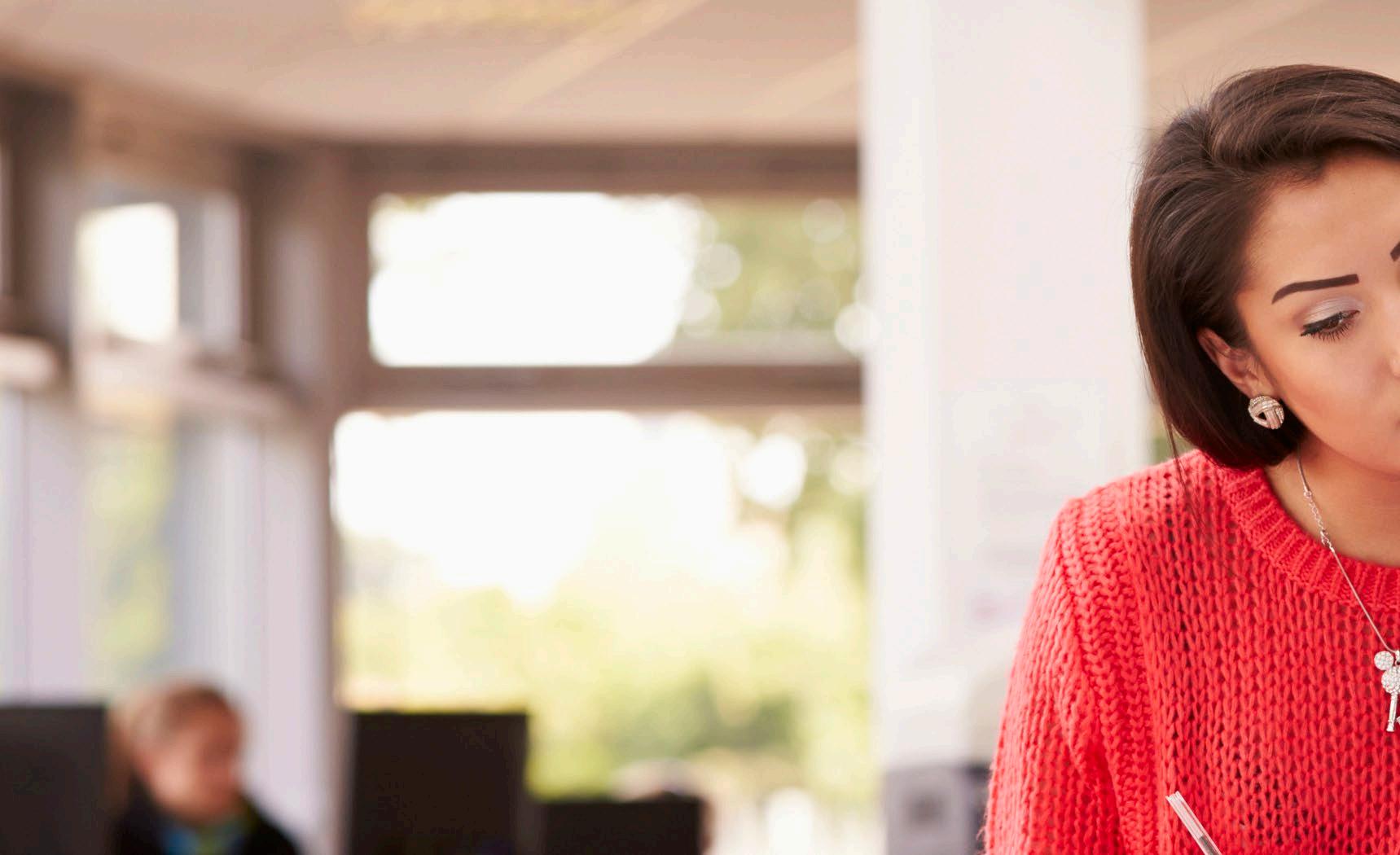THE RESEARCH ISSUE
addressing the placement mismatch THROUGH PEER COACHING AND MENTORING Vianna Renaud, Placement Development Adviser for the Faculty of Media and Communication at Bournemouth University, is undertaking her doctoral studies on peer-to-peer employability coaching and mentoring.
A
s a Placement Development Adviser supporting third-year students within the Faculty of Marketing and Communication, I very often see a mismatch between student expectations and the reality of where they ended up on placement. Given the impact of this on student confidence and the overall student experience, I chose to further investigate a possible initiative to help students for my doctoral studies. To gain a holistic perspective, I have drawn upon my involvement as a Trustee for ASET, and activities for the Workplace Division of the British Association of Counselling and Psychotherapy (BACP) and the International Association for Student Affairs and Services (IASAS). Currently at Bournemouth University, there is an established Peer Assisted Learning (PAL) programme on campus, where second-year students support first-year students in their transition to university life. While Navigating Change: A Typology of Student Transition in Higher Education (Gale and Parker, 2014) confirms that similar peer-topeer learning has been proven to improve the transition to university life and create greater confidence in students, a particular focus on employability and the transition to the sandwich placement is less explored and understood.
RESEARCH QUESTION My research questions stem from how a coaching and mentoring initiative with a focus on employability can impact both first and final-year placement students. For first-year students, I wanted to
12
PHOENIX JUNE 2020
explore their awareness of their own employability, their concept of personal responsibility in the process, their awareness of both campus and external resources available to them, and any change in confidence and knowledge as a result of being coached and mentored by a peer over a period of time. For final-year students, I was keen to explore how they could develop their coaching and mentoring skills to enhance their employability upon graduation and whether or not being a coach/mentor to a peer had made an impact to their own development. In this project, I matched first and final-year students within the Department of Corporate and Marketing Communications. I created a series of guided one-to-one engagement points to take place over a short period of time. Given that both coaching and mentoring techniques were going to be used, I named the first-year participants M-Coachees and final-year participants M-Coaches.
COLLABORATIVE PROCESS In looking at the project design, it was crucial to me that it was a collaborative process with students. I met with all participants regarding their thoughts and expectations about what to include. I also met with key academic staff for their input and, based upon my own knowledge of the employability and placement domain within higher education, I combined the information to create individual session guidance notes. The pairs had three to four engagement points, where I left it to them to determine how it was going to be conducted. Students chose to either meet up in person, exchange emails, use Facebook instant
















